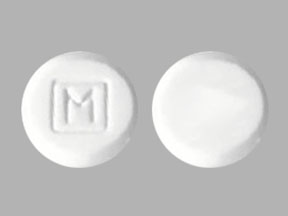Levorphanol and Alcohol/Food Interactions
There is 1 alcohol/food/lifestyle interaction with levorphanol.
Levorphanol Food/Lifestyle
Major Food Interaction
GENERALLY AVOID: Alcohol may potentiate the central nervous system (CNS) depressant effects of opioid analgesics. Concomitant use may result in additive CNS depression and impairment of judgment, thinking, and psychomotor skills. In more severe cases, hypotension, respiratory depression, profound sedation, coma, or even death may occur. In addition, alcohol may affect opioid release from sustained-release formulations.
MANAGEMENT: Patients should not consume alcoholic beverages or use drug products that contain alcohol during treatment with opioid analgesics. Any history of alcohol or illicit drug use should be considered when prescribing an opioid analgesic, and therapy initiated at a lower dosage if necessary. Patients should be closely monitored for signs and symptoms of sedation, respiratory depression, and hypotension.
References (9)
- (2024) "Product Information. Oxymorphone Hydrochloride (oxyMORphone)." Aurolife Pharma LLC
- (2024) "Product Information. Levorphanol Tartrate (levorphanol)." Virtus Pharmaceuticals LLC
- (2025) "Product Information. Nalbuphine Hydrochloride (nalbuphine)." Hospira Inc
- (2024) "Product Information. Remifentanil Hydrochloride (remifentanil)." Fresenius Kabi USA, LLC
- (2022) "Product Information. Remifentanil (remifentanil)." Wockhardt UK Ltd
- (2024) "Product Information. Cyclizine-Dipipanone (cyclizine-dipipanone)." Advanz Pharma
- Cherrier MM, Shen DD, Shireman L, et al. (2021) "Elevated customary alcohol consumption attenuates opioid effects." Pharmacol Biochem Behav, 4, p. 1-27
- (2024) "Product Information. Oxymorphone Hydrochloride ER (oxyMORphone)." Amneal Pharmaceuticals LLC
- (2025) "Product Information. Dihydrocodeine (dihydrocodeine)." Ennogen Healthcare International Ltd
Switch to consumer interaction data
Levorphanol drug interactions
There are 393 drug interactions with levorphanol.
Levorphanol disease interactions
There are 16 disease interactions with levorphanol which include:
- impaired GI motility
- infectious diarrhea
- prematurity
- acute alcohol intoxication
- drug dependence
- hypotension
- intracranial pressure
- respiratory depression
- gastrointestinal obstruction
- adrenal insufficiency
- liver disease
- renal dysfunction
- seizure disorders
- urinary retention
- arrhythmias
- biliary tract disease
More about levorphanol
- levorphanol consumer information
- Check interactions
- Compare alternatives
- Pricing & coupons
- Reviews (22)
- Drug images
- Side effects
- Dosage information
- During pregnancy
- Drug class: Opioids (narcotic analgesics)
- En español
Related treatment guides
Drug Interaction Classification
| Highly clinically significant. Avoid combinations; the risk of the interaction outweighs the benefit. | |
| Moderately clinically significant. Usually avoid combinations; use it only under special circumstances. | |
| Minimally clinically significant. Minimize risk; assess risk and consider an alternative drug, take steps to circumvent the interaction risk and/or institute a monitoring plan. | |
| No interaction information available. |
See also:
Further information
Always consult your healthcare provider to ensure the information displayed on this page applies to your personal circumstances.


